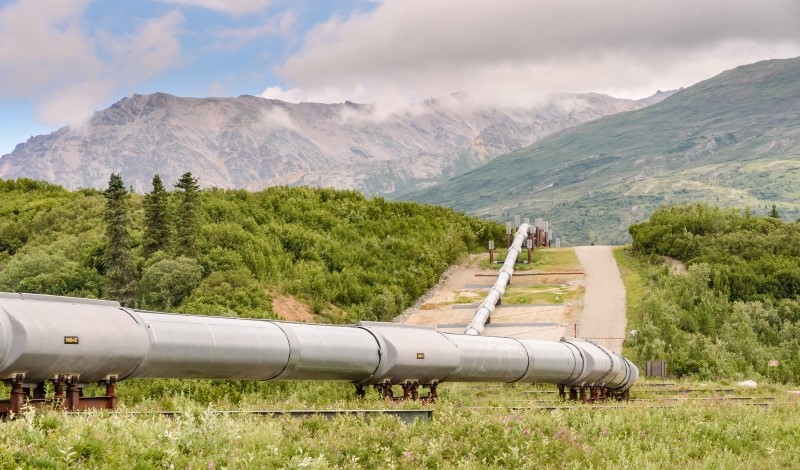
Experts explore how environmental litigation has obstructed pipeline construction.
Pipelines often cause serious environmental harm. As a result, almost every pipeline in recent years has faced legal battles that prolong and sometimes even cancel pipeline construction. Pipeline developers, nonetheless, will likely continue to propose and build pipelines due to a demand for natural gas and oil in the current energy market.
In a recent article, two legal experts, Madison Hinkle and Jesse Richardson, analyze several pipeline lawsuits and explore how the litigation efforts of pipeline opponents may affect future pipeline development.
Most pipelines require approval from a federal agency, such as the Federal Energy Regulatory Commission (FERC), the U.S. Fish and Wildlife Service (FWS), or the National Park Service (NPS). Hinkle and Richardson find that these agencies have a large influence over pipeline regulation, and, in turn, groups opposing pipelines will often sue these agencies directly.
The Democratic party, by and large, favors renewable energy, while Republicans tend to support the fossil fuel industry, note Hinkle and Richardson. Following these trends, agencies under the Obama Administration hindered pipeline construction, while agencies under the Trump Administration eased the regulatory process for pipeline development.
For this reason, between 2016 and 2021, many pipeline lawsuits challenged decisions and actions of federal agencies, according to Hinkle and Richardson.
The Atlantic Coast Pipeline, for example, was a proposed 600-mile pipeline set to run from West Virginia to Virginia and North Carolina. Hinkle and Richardson describe how environmental groups sued FWS and NPS, among other agencies, for authorizing the pipeline. The U.S. Court of Appeals for the Fourth Circuit found that in “fast-tracking its decisions,” FWS neglected to protect endangered species and their habitats. The Fourth Circuit also found that NPS went beyond the scope of its authority in allowing the pipeline to cross the Blue Ridge Parkway.
In 2020, after almost six years of litigation, the cost of the Atlantic Coast Pipeline increased from $5 billion to $8 billion, Hinkle and Richardson note. The developers then canceled the project.
Hinkle and Richardson point to other pipeline projects that have faced similar regulatory hurdles.
The Mountain Valley Pipeline is a planned 300-mile pipeline set to operate from West Virginia to Virginia. In 2017, FERC granted the pipeline certification to begin construction. Yet in 2022, the Fourth Circuit revoked the certificate, holding that the pipeline could not pass through Jefferson National Forest. The court also invalidated FWS’s authorization, finding, again, that FWS did not assess adequately the impact the pipeline would have on endangered species.
The Mountain Valley Pipeline was set to be ready in 2018, at a cost of $3.5 billion, note Hinkle and Richardson. In 2021, Mountain Valley said the project would be done by 2022, costing $6.2 billion. Mountain Valley has since announced the pipeline will be complete by late 2023. One of the pipeline’s large investors said it was rethinking its role in the project, stating “the continued legal and regulatory challenges have resulted in a very low probability of pipeline completion.”
In 2015, FERC approved the Penn East Pipeline, a 116-mile pipeline that would run from Pennsylvania to New Jersey. New Jersey argued that the pipeline impinged on its sovereignty, yet the U.S. Supreme Court ruled in favor of the pipeline. Penn East still canceled the pipeline due to regulatory uncertainties and the time and money that further lawsuits may require.
Hinkle and Richardson point to the lawsuits against the Atlantic Coast Pipeline, the Mountain Valley Pipeline, and Penn East Pipeline, among others, to illustrate how environmental litigation can be a “powerful tool” for disrupting pipeline construction.
Lower courts, specifically the Fourth Circuit and the U.S. Court of Appeals for the D.C. Circuit, tend to support environmentalists over pipeline developers, explain Hinkle and Richardson. They say that the current Supreme Court, on the other hand, has “bent over backwards to find arguments that support the position of the pipeline companies.” In 2020 and 2021, for instance, the Supreme Court decided two major pipeline cases, both of which overturned lower court decisions that ruled in favor of environmental groups.
Looking forward, if a new president were elected in 2024 who is more supportive of fossil fuels, as was President Donald Trump, then pipelines will once again have support in the executive branch and agencies, explain Hinkle and Richardson. As a result, they predict that environmental groups will continue to pursue administrative and judicial claims against pipelines.
Hinkle and Richardson anticipate that pipeline companies will in turn develop new strategies to address environmentalists’ concerns. They suggest that pipeline companies may wish to begin project development and preparation earlier in the hopes of overcoming regulatory and legal obstacles.
Pipeline construction is not dead just yet, Hinkle and Richardson explain, but environmental litigation will likely continue to obstruct pipeline development at every turn.



